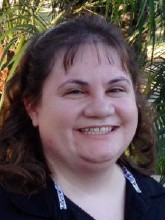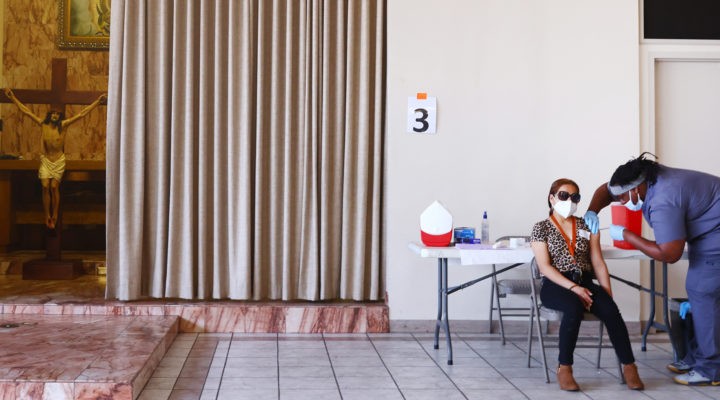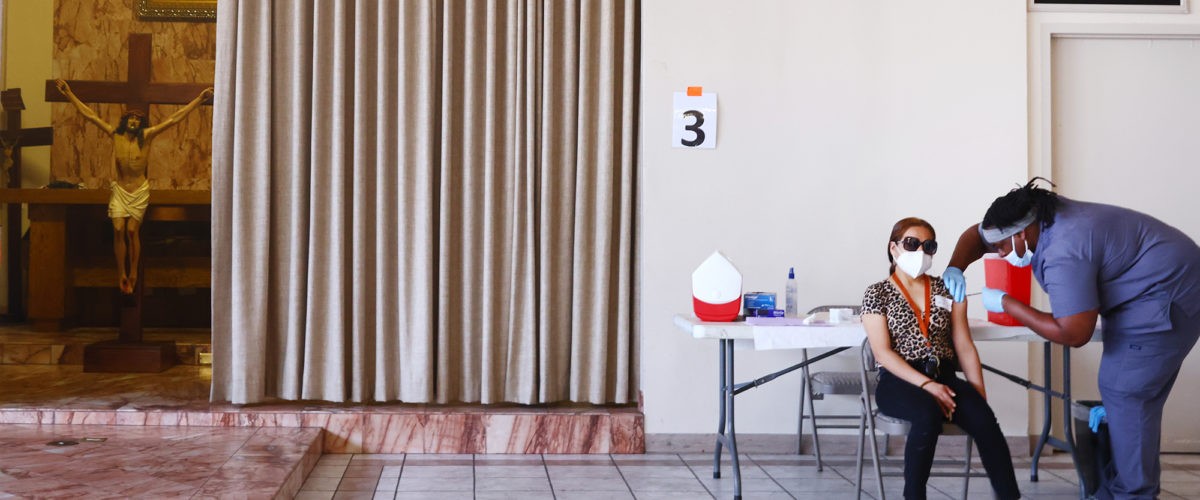I am thrice vaccinated now, and each time I receive a shot of the Pfizer vaccine, I feel like I am participating in something both humbling and sacred.
I am a Christian who believes very deeply in what the Catholic activist Eileen Egan called the “seamless garment” of life, so to me, getting vaccinated was a religious act, not simply biological protection. It also was humbling, because I know that as an American, I was born with a lot of privilege — especially as I was able to get a shot three times when friends in other countries are still waiting for their first turn. Indeed, I was able to get fully vaccinated even before some of my fellow Americans.

Laura Rector
I chose vaccination because I believe in the sacredness of human life. The Bible teaches that every human life is made “in the image of God” (Genesis 1:26-27). It also teaches that Jesus loved “the whole world” (John 3:16). This sacredness applies to all humans, not simply the unborn, and that means the church needs a consistent ethic that honors life.
Already, 4.55 million people have died from COVID worldwide, and 688,000 of those deaths have been in the United States. God loved each and every one of those people just as much as God loves me.
As a Christian, I have a responsibility to prevent more deaths as much as it is up to me. I realize there are some Christians who have concerns about how the Johnson & Johnson vaccine was developed, but not getting any vaccine because of doubts about one isn’t a consistently pro-life position either.
Preventing needless deaths
Not doing something to save the lives of your neighbors and prevent needless deaths because of concerns about what happened in the past doesn’t speak life into the current situation.
Getting the vaccine is one of the ways that I, as an average citizen, can help save others and end this pandemic, so not getting it was never an option to me.
This sacredness of life applies to all humans, not simply myself.
Getting vaccinated is an act of agape love for my neighbors. When people say they want “natural immunity” or that they fear the vaccines’ side effects or unforeseen long-term effects and refuse vaccination, they are ignoring the fact that their neighbors’ lives matter, too. Natural immunity only lasts so long and doesn’t necessarily prevent re-infection or protect the body as well from variants, which has profound community implications — neighbor-love implications — as we’ve seen with the Delta variant’s surge.
“This sacredness of life applies to all humans, not simply myself.”
Natural immunity means a willingness to get COVID, and yet COVID is contagious. If you get COVID, then you will spread it to others, risking your life as well as others’ lives. That’s not neighbor love.
It’s a normal part of being a God-created human to worry about your own body and to treat it as a “temple” (1 Corinthians 6:19), but we have to remember our neighbors, too, and remember that God calls us to sacrificial love. John 15:13 says, “Greater love has no one than this: to lay down one’s life for one’s friends.” Romans 5:7-8 says, “For one will scarcely die for a righteous person — though perhaps for a good person one would dare even to die — but God shows his love for us in that while we were still sinners, Christ died for us.”
God calls us to sacrificially love others. In this case, the “sacrifice” is really a gift, since the scientific community has overwhelmingly proved that the vaccines can prevent hospitalization and protect your neighbors. It’s also a repentance of fear and pride for the sake of neighbor love and the common good. My neighbors include those who get COVID, communities having their resources drained by this disease, essential workers bearing the brunt of my privilege, and the over-stretched medical community who have the gut-wrenching task of helping people who are dying needlessly.
Caring for the vulnerable
God calls us to show special care to the vulnerable. The Bible teaches us to take special care of the elderly, those with medical conditions, the poor, children and the oppressed (James 1:27, 2:14-17; Isaiah 58:6-11; Mark 10:13-16; Matthew 25:35-45).
I got vaccinated because I don’t want the kids who can’t yet be vaccinated and medically fragile people in my community to get sick. I got vaccinated, because there are deep inequities in how the vaccines are distributed globally, and it would be the height of arrogance to scoff at this privilege when others don’t yet have the same life-giving opportunity.
I also don’t want to cause others to grieve. I lost some very important people in my life, both as a child and an adult. I don’t want to put any of the kids in my life through that if I can prevent it. Grief has shaped my Christian faith deeply, but that doesn’t mean God desires us to suffer just for the sake of suffering, especially when deaths can be prevented.
This is a resurrection moment
I believe in the miraculous and a Jesus who heals, and I believe the vaccines are just that — a healing miracle. The scientific community has pointed out that the development of safe, effective vaccines in record time is as miraculous as putting a human on the moon for the first time. It hurts, then, to see so many Americans, particularly Christian Americans, scoff at this miracle.
“I believe in the miraculous and a Jesus who heals, and I believe the vaccines are just that — a healing miracle.”
I believe this vaccine is a resurrection moment (although, obviously, it should not be equated with the Resurrection itself.) It’s beautiful, miraculous and a wonderful gift from God, and yet some American Christians are throwing tantrums at the very idea of vaccination? The vaccines have breathed a life-giving opportunity into a world screaming in pain, and some Christians are welcoming more pain — often unnecessary pain — rather than being grateful for this miracle. That hurts.
Yes, the Bible gives us freedom, but it is freedom to do good, and not evil — to save lives and not to harm them, with respect for authorities. That doesn’t mean we support governments without question in light of moral evils, but it does mean we support them in moral goods — like saving lives.
Instead, some Christians have reduced their public witness to one that dishonors life and lacks love for neighbors, by refusing to wear masks, protesting restrictions meant to protect them, and refusing to get vaccinated. None of that aligns with what the Bible teaches about valid reasons for civil disobedience or love for neighbors.
Caring for my own body
Finally, I got vaccinated, because I believe that as a God-created, image-bearing human God wants me to take care of my physical body. I admit this is often a difficult part of Christian discipleship for me. I don’t sleep well. I consistently forget to take my medications, and I need more exercise. Getting a vaccine is an easy way to appreciate the body God has given me, though.
Honoring that body through vaccination doesn’t mean I elevate myself over others. In the case of a COVID vaccination, I don’t have to. The science behind the vaccines has been around for years, and the vaccines were rigorously tested, even if the vaccines were quickly developed. The science takes what our body does naturally and uses the body’s own mechanisms to protect human lives.
Getting my vaccine was a sacred opportunity to learn about the human body and to marvel at the Creator who made us. The science fills me with gratitude at the marvelous ways God designed my body.
Getting a COVID vaccine is a sacred moment, allowing us to participate in a miracle, marvel at our Creator, and worship the God who calls us to love our neighbors. How can anyone turn their back on such an opportunity?
Laura Rector serves as affiliate assistant professor of Christian ethics at Fuller Theological Seminary. She holds a Ph.D. in theology and teaches Christian ethics.
Related articles:
Honoring vaccination status is the next step for social justice | Opinion by Amber Cantorna
Francis Collins: ‘Give God the glory’ for vaccines ‘but roll up your sleeve’
Looking for a religious exemption to a COVID vaccine mandate? Most denominations won’t help you


